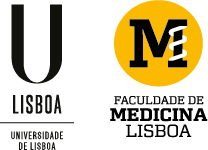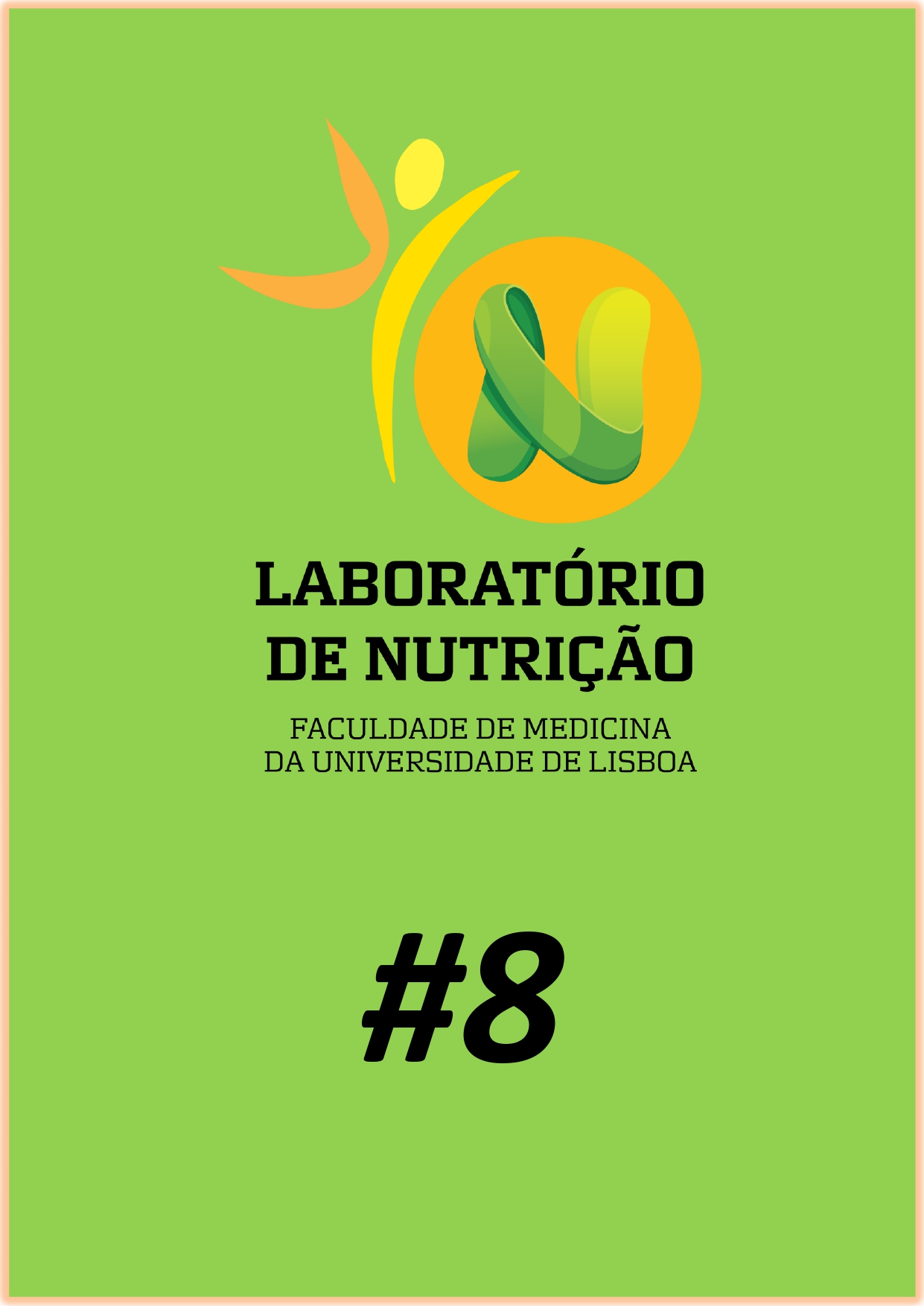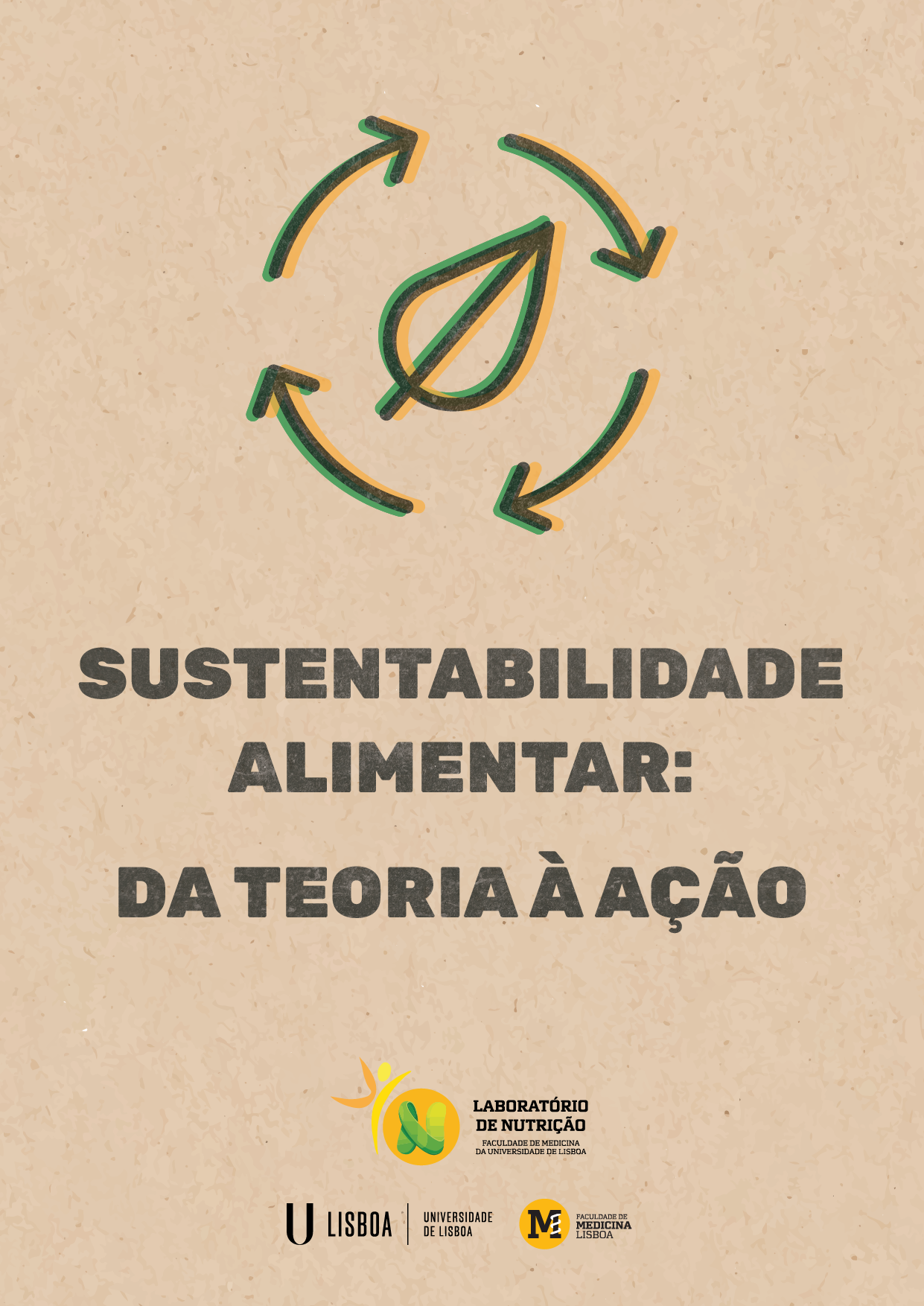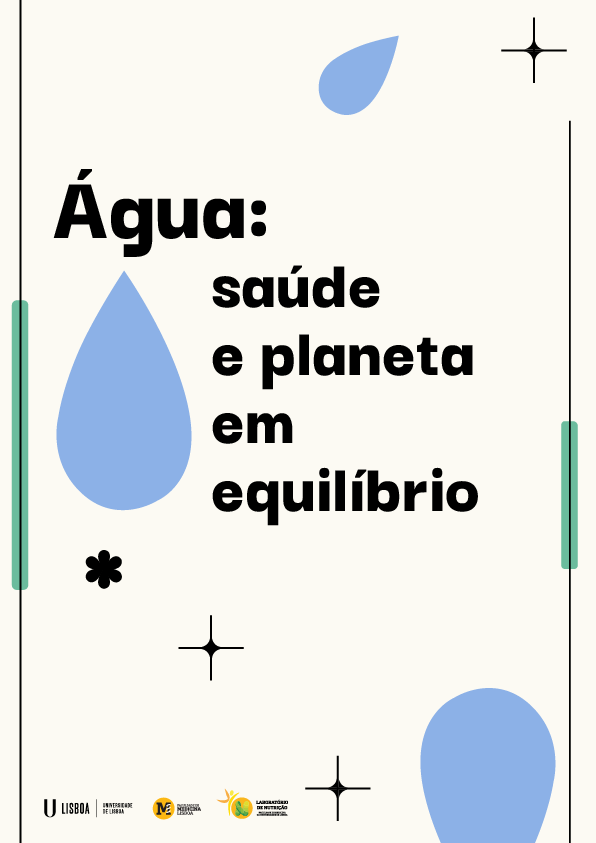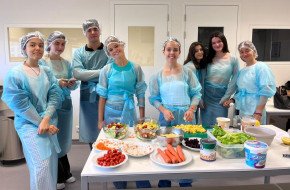The Nutrition Laboratory, within the mission of the Lisbon School of Medicine (FMUL) and as a structural unit of FMUL, develops its activities along three priority areas: Teaching, Research, and Community Support. The Advanced Nutrition Center, integrated into this structural unit, has contributed to the development of these three key areas of action.
Teaching
The Nutrition Lab is responsible for teaching competencies in Nutrition and related fields across three dimensions (clinical, epidemiological, and community nutrition and public health), highlighting the coordination of the BSc in Nutritional Sciences, which started in the academic year 2018/19. This educational offer results from the joint efforts of four structural units of the University of Lisbon: FMUL (programme promoter), the Faculty of Human Kinetics, the Faculty of Pharmacy, and the School of Agriculture, all institutions of reference at National level. It is a unique and innovative project within the scope of Nutritional Sciences in Portugal, where each Faculty/School contributes with specific and specialized know-how in the foundational areas of academic training for Nutritionists.
It is also important to highlight the coordination of the Master's in Clinical Nutrition (since 2011), conducted in partnership with the Lisbon School of Health Technology, as well as the participation in the Integrated Master’s in Medicine, the Master's in Metabolic Diseases and Eating Behavior, and the Master's in Cardiovascular Rehabilitation. At the doctoral level, the Nutrition Lab is involved in the Doctoral Program in Sustainability Sciences at the University of Lisbon and the Doctoral Program of the Lisbon Academic Medical Center (CAML).
Research
The Nutrition Lab aims to promote clinical, epidemiological, and translational research, with a focus on the role of nutrition, food, and nutritional status in promoting healthy lifestyles, recognizing their influence on the development of various diseases, as well as understanding the therapeutic potential in different clinical contexts. The research is primarily conducted in collaboration with other national and international institutions, namely the Local Health Unit of Santa Maria, structural units of the University of Lisbon, and other international institutions within the scope of international networks and multicentric clinical trials.
Community Support
The Nutrition Lab bases its mission on the strategic axes of FMUL's mission, focusing on the training of nutritionists, teaching, and research in the field of Nutrition and essential sciences for health promotion, prevention, diagnosis, treatment, and rehabilitation of disease, through the creation, transmission, and dissemination of science, technology, and culture, respecting intellectual freedom and ethics, recognizing merit and a sense of service towards the community with a direct link to food and nutrition. The Nutrition Lab develops various community support activities, thus assuming the institutional and social responsibilities inherent to a public educational institution such as FMUL. Accordingly, the Nutrition Lab’s community support targets three specific groups: FMUL, the University of Lisbon, and the Civil Community.
LN/CNA research covers three research domains:
1. Nutritional therapy in the management of chronic diseases: Research in this domain includes developing, implementing, evaluating and disseminating behavior change and personalized/precision nutrition interventions for the prevention and management of non-communicable diseases. This includes cancer, cardiovascular disease, liver disease, inflammatory bowel disease, rheumatoid arthritis, and obesity.
2. Determinants of health/disease: Research in this domain focuses on identifying biological, behavioral and psychosocial factors and potential interactions between them that contribute to weight loss maintenance and improvement of energy balance-related behaviors (dietary intake/eating behavior and physical activity) across the life cycle (from pregnancy to elderly) and in specific contexts.
3. Promotion of healthy eating in the community context: Research in this domain focuses on the development, implementation, evaluation and translation of nutrition education programs in specific populational groups.
Ongoing (with funding)
Ongoing (without funding)
Completed
Cespiati, A., Rodrigues, I.C., Santos, I., Policarpo, S., Carvalhana, S., Fracanzani, A.L., Cortez-Pinto, H. (2024). Effect of HCV eradication by DAAs on liver steatosis, carotid atherosclerosis, and associated metabolic comorbidities: A systematic review. Liver International: http://dx.doi.org/10.1111/liv.15876
Guedes, F.B., Cerqueira, A., MarquesPinto, A., Branco, A., Galvão, C., Sousa, J., Goulao, L.F., Bronze, R., Viegas, W., Gaspar, T., Moreno, C., & de Matos, M. G. (2024). School and family ecosystem: Incentives and barriers to school–family communication. European Journal of Education, 59, e12620. https://doi.org/10.1111/ejed.12620
Júdice, P.B., Carraça, E.V., Santos, I., Palmeira, A.L., Jerónimo, F., Silva, M.N. (2024). Different sedentary behavior domains present distinct associations with eating-related indicators. BMC Public Health, 24, 1: http://dx.doi.org/10.1186/s12889-024-17760-2.
Garagarza, C., Valente, A., Queirós, C., Neto, I.P., Sebastião, J., Gomes, M., Ferreira, A. (2024). Hyperparathyroidism, serum phosphorus and dietary intake in hemodialysis patients: is there a novel relationship? International Journal of Molecular Sciences, 25(4), 2006: https://dx.doi.org/10.3390/ijms25042006
Carraça, E. V., Nunes, C. L., Santos, I., Finlayson, G., & Silva, A. M. (2023). Food reward associations with motivational eating behavior traits and body mass index in Portuguese former elite athletes. Journal of the Science of Food and Agriculture, 10.1002/jsfa.13134. Advance online publication. https://doi.org/10.1002/jsfa.13134
Charneca, S., Hernando, A., Costa-Reis, P., & Guerreiro, C. S. (2023). Beyond Seasoning-The Role of Herbs and Spices in Rheumatic Diseases. Nutrients, 15(12), 2812. https://doi.org/10.3390/nu15122812
Charneca, S., Gomes, A. I., Branco, D., Guerreiro, T., Barros, L., & Sousa, J. (2023). Intake of added sugar, fruits, vegetables, and legumes of Portuguese preschool children: Baseline data from SmartFeeding4Kids randomized controlled trial participants. Frontiers in Nutrition, 10, 1150627. https://doi.org/10.3389/fnut.2023.1150627
Charneca, S., Ferro, M., Vasques, J., Carolino, E., Martins-Martinho, J., Duarte-Monteiro, A. M., Dourado, E., Fonseca, J. E., & Guerreiro, C. S. (2023). The Mediterranean diet, and not dietary inflammatory index, is associated with rheumatoid arthritis disease activity, the impact of disease and functional disability. European Journal of Nutrition, 62(7), 2827–2839. https://doi.org/10.1007/s00394-023-03196-8
Júdice, P. B., Silva, H., Teno, S. C., Monteiro, P., Silva, M. N., Carraça, E. V., Santos, I., Pereira, S., Luz, F., Viegas, P. C., Oliveira, J., Santos, I. F., & Palmeira, A. L. (2023). Providing office workers with height-adjustable workstation to reduce and interrupt workplace sitting time: protocol for the Stand Up for Healthy Aging (SUFHA) cluster randomized controlled trial. Trials, 24(1), 381. https://doi.org/10.1186/s13063-023-07407-9
Mendes, I. C., Carvalho, R., Asseiceira, I., Mendes, A., Morgado, S., Amaral, R., Sousa, I., & Sousa, J. (2023). Nutritional Risk Screening in Children with Cerebral Palsy. Portuguese Journal of Pediatrics, 54(2). https://doi.org/10.25754/pjp.2023.26253
Palmeira, A. L., Marques, M. M., Sánchez-Oliva, D., Encantado, J., Santos, I., Duarte, C., Matos, M., Carneiro-Barrera, A., Larsen, S. C., Horgan, G., Sniehotta, F. F., Teixeira, P. J., Stubbs, R. J., & Heitmann, B. L. (2023). Are motivational and self-regulation factors associated with 12 months' weight regain prevention in the NoHoW study? An analysis of European adults. The International Journal of Behavioral Nutrition and Physical Activity, 20(1), 128. https://doi.org/10.1186/s12966-023-01529-8
Rodrigues, B., Carraça, E. V., Francisco, B. B., Nobre, I., Cortez-Pinto, H., & Santos, I. (2023). Theory-based physical activity and/or nutrition behavior change interventions for cancer survivors: a systematic review. Journal of Cancer Survivorship, 10.1007/s11764-023-01390-5. https://doi.org/10.1007/s11764-023-01390-5
Vasconcellos, C., Ferreira, O., Lopes, M. F., Ribeiro, A. F., Vasques, J., & Guerreiro, C. S. (2023). Nutritional Genomics in Nonalcoholic Fatty Liver Disease. Biomedicines, 11(2), 319. https://doi.org/10.3390/biomedicines11020319
Silva, A. M., Campa, F., Stagi, S., Gobbo, L. A., Buffa, R., Toselli, S., Silva, D. A. S., Gonçalves, E. M., Langer, R. D., Guerra-Júnior, G., Machado, D. R. L., Kondo, E., Sagayama, H., Omi, N., Yamada, Y., Yoshida, T., Fukuda, W., Gonzalez, M. C., Orlandi, S. P., Koury, J. C., … Marini, E. (2023). The bioelectrical impedance analysis (BIA) international database: aims, scope, and call for data. European Journal of Clinical Nutrition, 77(12), 1143–1150. https://doi.org/10.1038/s41430-023-01310-x
Costa, A., Feteira-Santos, R., Alarcão, V., Henriques, A., Madeira, T., Virgolino, A., Arriaga, M., & Nogueira, P. J. (2023). Health Literacy among Older Adults in Portugal and Associated Sociodemographic, Health and Healthcare-Related Factors. International Journal of Environmental Research and Public Health, 20(5), 4172. https://doi.org/10.3390/ijerph20054172
Costa, A., Henriques, J., Alarcão, V., Henriques, A., Madeira, T., Virgolino, A., Sousa, J., Feteira-Santos, R., Arriaga, M., Rocha, J., & Nogueira, P. (2023). Active aging awareness and well-being among older adults in Portugal. Frontiers in Public Health, 11, 1149731. https://doi.org/10.3389/fpubh.2023.1149731
Sousa-Santos, N., Fialho, M., Madeira, T., Clara, C., Veiga, S., Martins, R., Barros, N., Santos, G., Santos, O., Almeida, C., Ganança, L., Campos, R. C., Camolas, J., da Silva, A. P., Guarino, M. P. S., & Heitor, M. J. (2023). Nutritional counselling in adults promoting adherence to the Mediterranean diet as adjuvant in the treatment of major depressive disorder (INDEPT): a randomized open controlled trial study protocol. BMC Psychiatry, 23(1), 227. https://doi.org/10.1186/s12888-023-04705-z
Abreu, F., Hernando A., Goulão, L., Pinto, A., Branco, A., Cerqueira, A., Galvao, C., Botelho-Guedes, F., Bronze, M., Viegas, W., Matos, M., & Sousa, J. (2023). Mediterranean diet adherence and nutritional literacy: an observational cross-sectional study of the reality of university students in a COVID-19 pandemic context. BMJ Nutrition, Prevention & Health. 6. e000659. 10.1136/bmjnph-2023-000659.
Garagarza C, Valente A, Caetano C, Ramos I, Sebastião J, Pinto M, Oliveira T, Ferreira A, Guerreiro CS. Mediterranean Diet: A Dietary Pattern Related to Nutritional Benefits for Hemodialysis Patients. J Ren Nutr. 2023 May;33(3):472-481. doi: 10.1053/j.jrn.2023.01.006 .
NCD Risk Factor Collaboration (NCD-RisC) (2023). Diminishing benefits of urban living for children and adolescents' growth and development. Nature, 615(7954), 874–883. https://doi.org/10.1038/s41586-023-05772-8
Guerreiro, M. P., Félix, I. B., & Camolas, J. (2023). Editorial: Digital approaches in the nutritional prevention and management of chronic diseases. Frontiers in Nutrition, 10, 1341135. https://doi.org/10.3389/fnut.2023.1341135
Cespiati, A., Lombardi, R., Smith, D., Carvalhana, S., Cinque, F., Policarpo, S., ... & Cortez-Pinto, H. (2023). The impact of metabolic comorbidities and alcohol consumption on FIB-4 and NFS performance in MAFLD: A multicentric preliminary data. Digestive and Liver Disease, 55, S38-S39.
Li, C., Carolino, E., & Sousa, J. (2023). Dietary Acculturation and Food Habit Changes among Chinese Immigrants in Portugal. Nutrients, 15(8), 1886. https://doi.org/10.3390/nu15081886
Pinto, A. M., Hobden, M. R., Brown, K. D., Farrimond, J., Targett, D., Corpe, C. P., Ellis, P. R., Todorova, Y., Socha, K., Bahsoon, S., Haworth, C., Marcel, M., Nie, X., & Hall, W. L. (2023). Acute effects of drinks containing blackcurrant and citrus (poly)phenols and dietary fibre on postprandial glycaemia, gut hormones, cognitive function and appetite in healthy adults: two randomised controlled trials. Food & Function, 14(22), 10163–10176. https://doi.org/10.1039/d3fo03085g
Machado H, Hofer P, Zechner R, Smith TK, Figueiredo LM. (2023). Adipocyte lipolysis protects mice against Trypanosoma brucei infection. Nat Microbiol 8, 2020-2032.
Paulino, A. C.; Policarpo, S.; Santos, I. (2023). Índice Inflamatório da Dieta em indivíduos com sucesso na gestão do peso: associação com indicadores de comportamento alimentar e depressão. Acta Portuguesa de Nutrição 33, 6-11. https://dx.doi.org/10.21011/apn.2023.3302.
Fratelli C, Nunes MC, De Rosso VV, Raymundo A and Braga ARC (2023), Spirulina and its residual biomass as alternative sustainable ingredients: impact on the rheological and nutritional features of wheat bread manufacture. Front. Food. Sci. Technol. 3:1258219. doi: 10.3389/frfst.2023.1258219
Avenida Professor Egas Moniz,
Edifício Egas Moniz, ala C, piso 2
1649-028 Lisboa - Portugal
Email: lab.nutricao@medicina.ulisboa.pt
Phone: +351 21 799 9465
O Centro de Nutrição Avançada presta serviços de saúde na área da nutrição e está devidamente reconhecido e registado na Entidade Reguladora da Saúde.
Missão
O CNA pretende constituir-se como uma vertente de extensão universitária e disponibilizar à população em geral, e também a entidades públicas e privadas, um conjunto diversificado de valências na área das ciências da nutrição e alimentação. O CNA tem por missão desenvolver a sua atividade, através da prestação de serviços especializados no âmbito das ciências da nutrição e alimentação, em estreita articulação com as atividades de investigação e de formação da FMUL e do LN, oferecendo um conjunto de serviços ajustados às necessidades específicas de cada cliente, criando soluções únicas e inovadoras.
Finalidade
Contribuir ativamente para a melhoria dos hábitos alimentares da população, permitindo contribuir para a evolução de atividades de investigação, com o objetivo de se tornar um centro de referência no que diz respeito à investigação na área das ciências da nutrição e alimentação.
Objetivos
São objetivos gerais do CNA:
1. Realizar consultas de nutrição aplicadas a diferentes especialidades clínicas/médicas que visam obter a otimização do estado nutricional do cliente de acordo com a sua condição patológica e/ou sintomatologia associada;
2. Desenvolver e/ou integrar programas de educação para a saúde e, em geral, de saúde pública, no domínio da nutrição comunitária e educação alimentar;
3. Fornecer serviços de consultoria na área das ciências da nutrição a instituições públicas ou privadas;
4. Desenvolver e/ou integrar projetos de investigação, que permitam a evolução do conhecimento científico no domínio das ciências da nutrição e alimentação.
Serviços
Com o intuito de responder aos objetivos supramencionados o CNA pretende oferecer serviços conforme descritos abaixo:
- Consultas de Nutrição
- Avaliação do Estado Nutricional
- Serviços de Consultoria
Para mais informações sobre este Centro, descarregue a brochura digital:
Estamos também ao dispor, à distância de um email: cna@medicina.ulisboa.pt
Professor Egas Moniz Avenue
Reynaldo dos Santos Building, 3rd floor, room 3.02
1649-028 Lisbon - Portugal
Secretariat
Inês Curtinhal Pires
Internal extension: 48 315
Hours
9:00 AM - 5:00 PM
